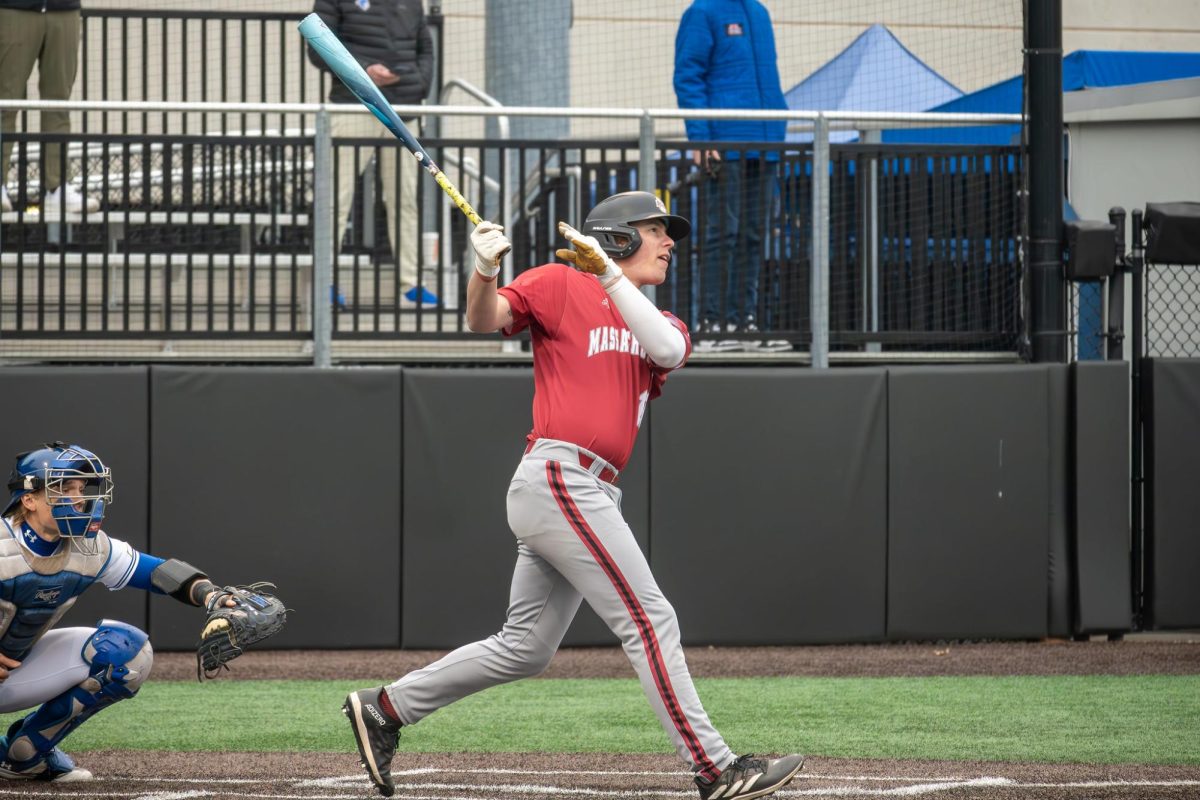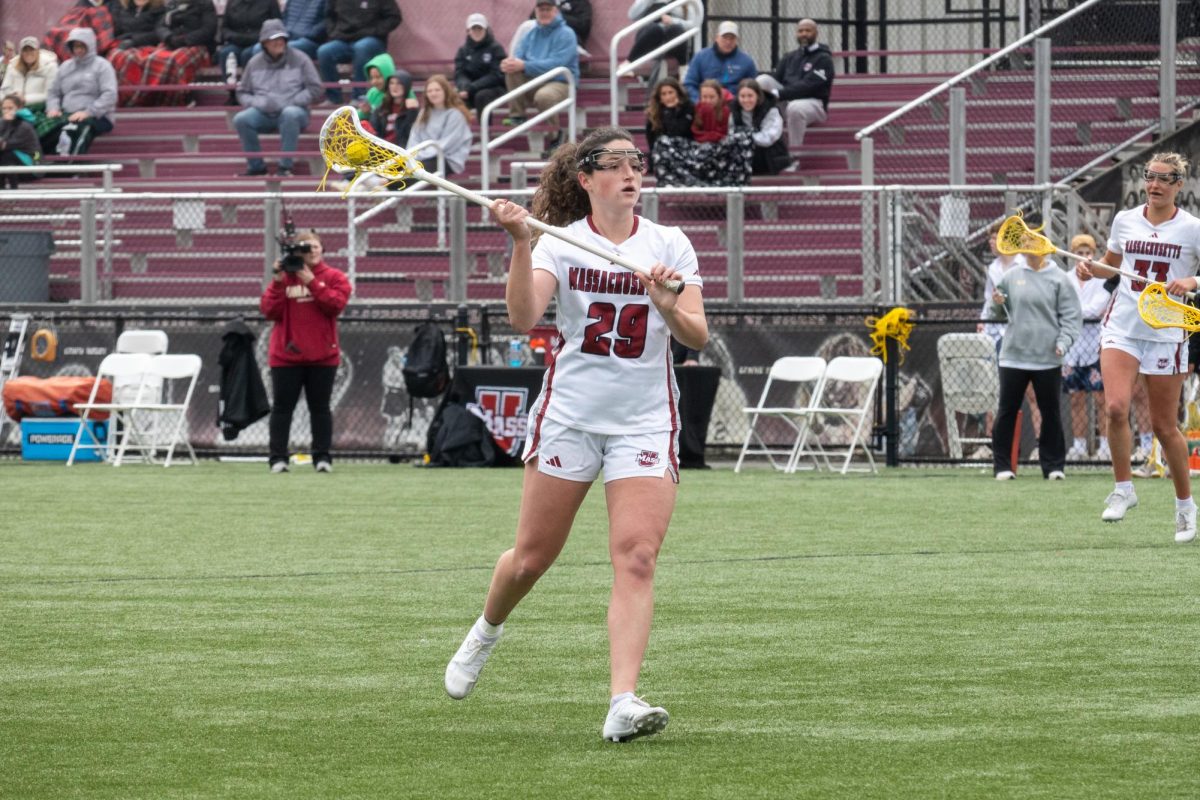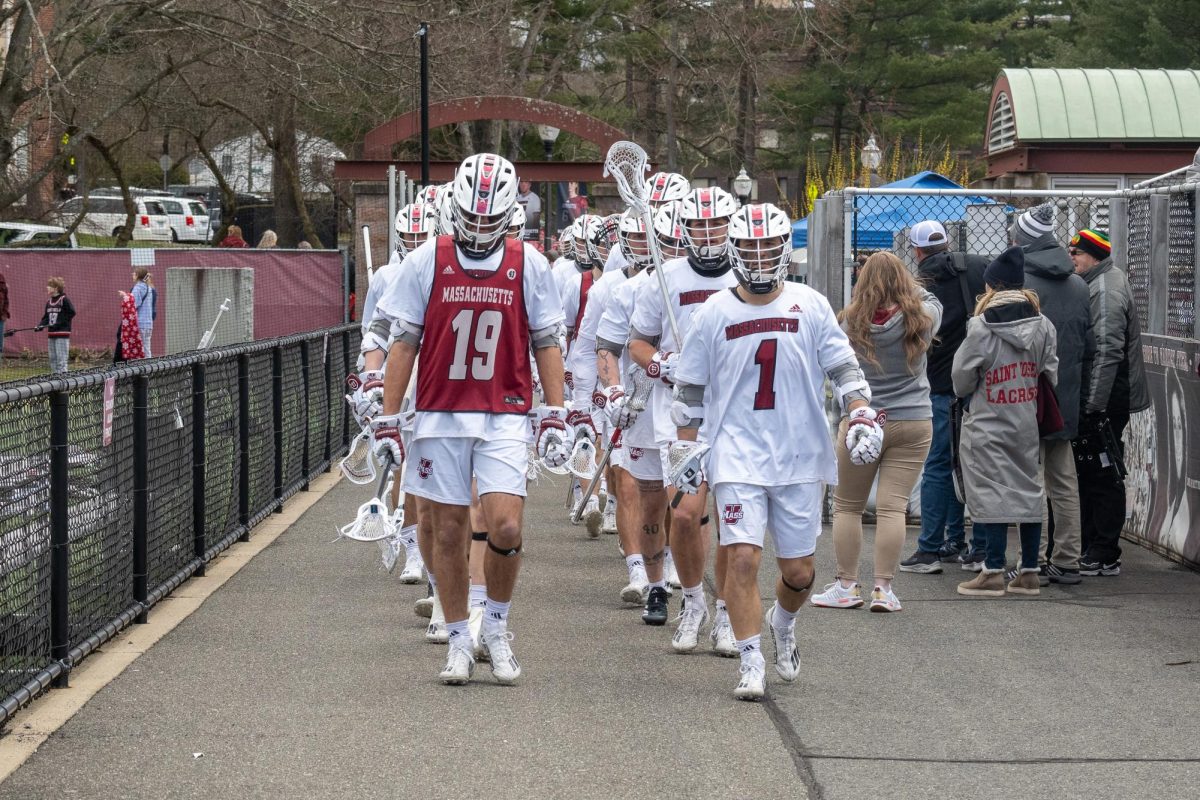
Students came together on Thursday, Nov. 10 in Goodell Hall to attend the weeks’ installation of the Feinberg Family Distinguished Lecture Series. This week featured a panel discussion and Q&A titled “Alien Incarceration: Migrants in Detention,” that focused on the history and current realities of migrant detention in the United States.
The panel discussion featured four speakers, David Hernández, professor at Mount Holyoke College who specializes in Latina/o studies, Carl Lindskoog, professor of history at Raritan Valley Community College, Megan Kludt, an immigration attorney at Curran and Berger Immigration Law in Northampton, and Mizue Aizeki, who works for the Immigrant Defense Project in New York City.
Each speaker had a section in the presentation that featured their area of expertise, starting with Hernandez’s “Homeland Insecurities: Uncovering the Migrant Detention Regime”. Hernandez focused largely on what exactly the migrant detention regime is and gave figures on how many people are detained at the border each year.
“Detention is not a priority in national immigration debates. Its’ decentralized” said Hernandez.
According to Hernandez, there are many families that are detained at the border. Many of the detention centers are privatized and for profit.
“Around 80 percent of the bed spaces are non-federal, and 50-73 percent of which are for profit” he said.
He pointed the presentation towards the current election, and how the rhetoric of new President-elect Donald Trump has affected how people view immigration.
“Are we going to continue to view these people as criminals? Terrorists?” Hernandez asked, “Or can we take an affirmative view? Can we view them as people, neighbors?”
The discussion then shifted to Lindskoog’s “Haitian Refugees and the Forgotten Origins of Immigrant Detention.” Lindskoog’s presentation focused on how migrant detention had become a prominent issue in the unprecedented Caribbean migrant crisis during the Reagan presidency.
The presentation also featured images that captured the migrants’ lives and their journey to the United States.
Many of these Haitian migrants were fleeing from poverty, human rights violations and coups against the government. Lindskoog articulated how the humanitarian aspect was not present during this administration, explaining that Reagan set forth policies focused on national security that would affect future immigration in the US.
“Reagan used Haitians immigration as an example to all other Latino immigrants,” said Lindskoog, “The Reagan administration recognized that it laid the foundation for detention for future migrants and asylum seekers”.
Kludt presented “Fight against Family Detention in Texas” next. Kludt said she frequently flies to the American border in Texas and New Mexico where she works with the families that are detained at detention centers, which essentially resemble prisons. She said that she often works with families with small children that are forced to stay at the center.
There are approximately 2000 bed spaces at the South Texas Family Residential Center in Dilley, Texas. It costs about $300 to provide for each detainee every day, according to Kludt.
Kludt highlighted some of the work she has done in the activism aspect. She, along with several other immigration attorneys, went to Artesia, New Mexico and tried to provide representation for these families. However, the detention center would deny their access since the families never formally hired them. Kludt explained that this led to more detainees being held at the center without the ability to mitigate their asylum case.
The last speaker, Aizeki, presented “Criminalization and Immigrants: Intersections of Mass Incarceration and Deportation.” Aizeki focused on how easy it is to deport immigrants in the U.S. and how there is an increased criminalization of immigrants. She fears that it may not get better, considering the results of the presidential election.
“Almost any conviction you can think of, constitutes deportation of migrants” Aizeki stated.
She explained how here in the U.S., Latino/a immigrants are often portrayed as crack dealers and criminals.
In 1981 there were only 54 migrants in detention. By 1996, there were 8,500 and more recently in 2015 there were 34,000 migrants in detention, according to Aizeki. She stressed that many of these people incarcerated are legal green card holders, yet they still get targeted for minor offenses.
Aizeki also put heavy emphasis on the discourse used in the discussion of immigration.
“We can no longer say ‘let’s lock all these Latinos up’” Aizeki said. “But it is now acceptable to say ‘these illegal aliens are a national security threat’ when they both mean the same thing”.
Esperanza Chairez, an environmental science major at Amherst College, attended the event because she said that this issue is important to her.
“I’m interested in immigration reform, and the recent election changes the context in which we talk about it. Incarceration will increase in the following years” said Chairez.
Angelese Revaleon can be reached at [email protected].


















